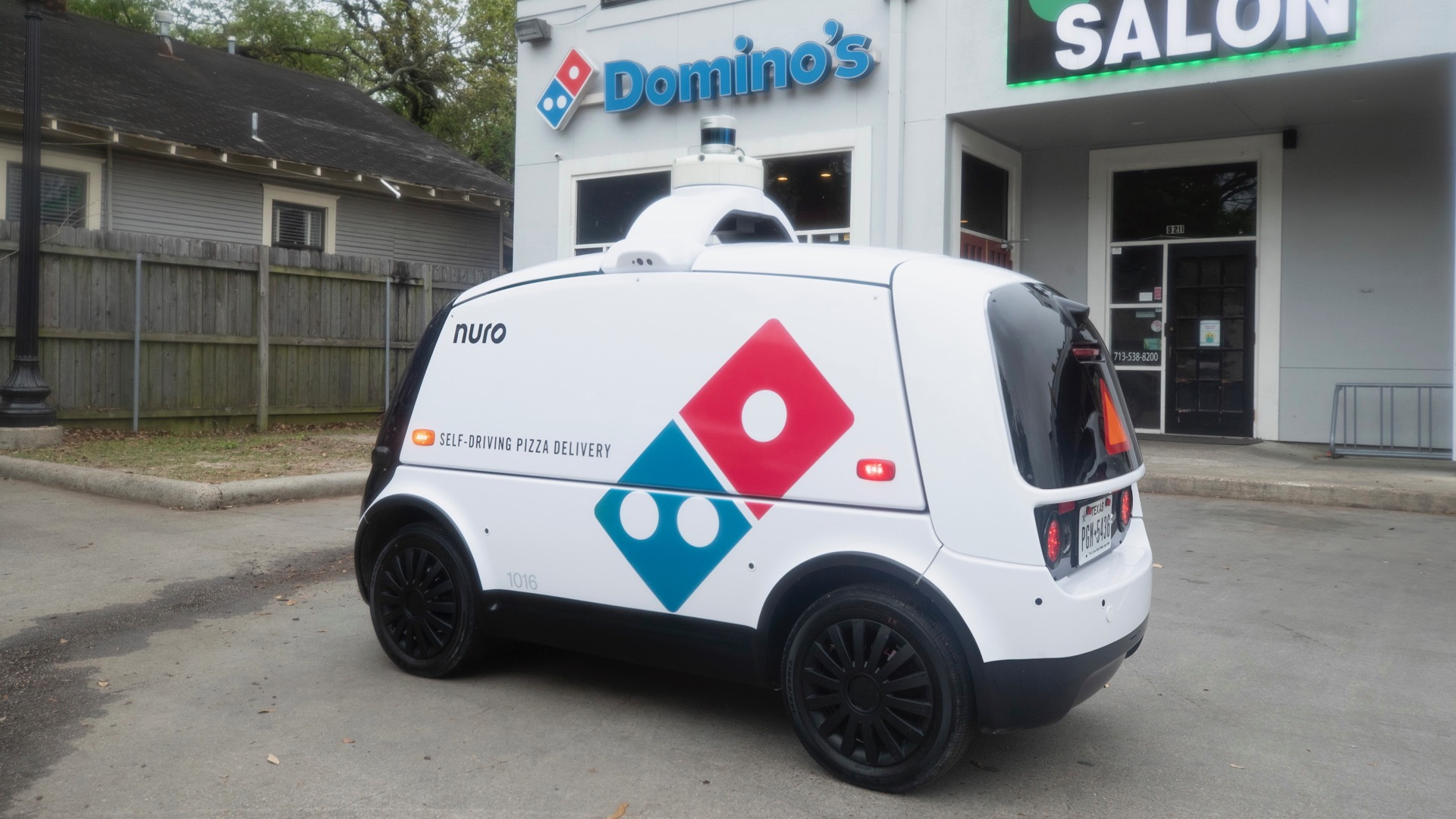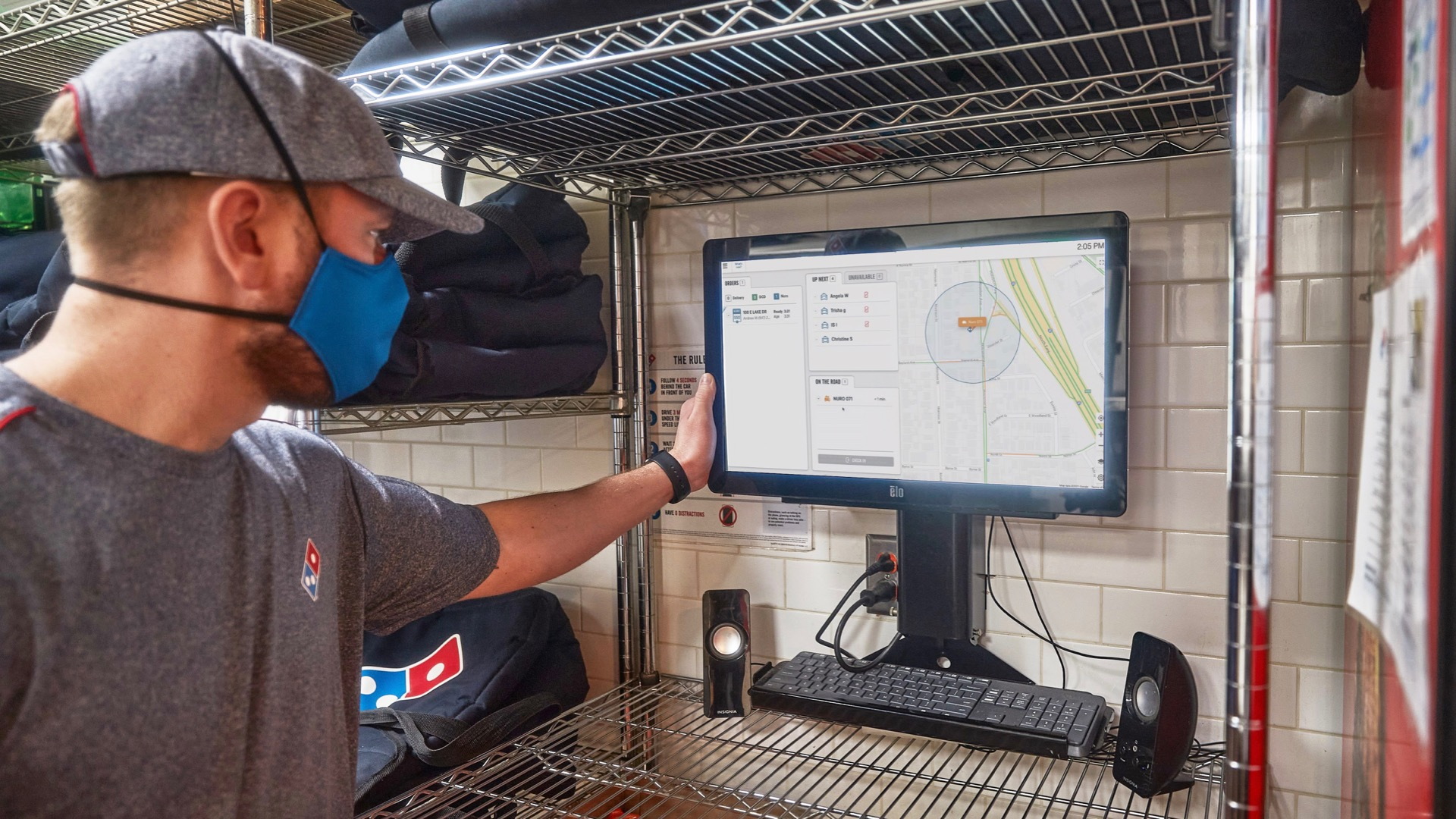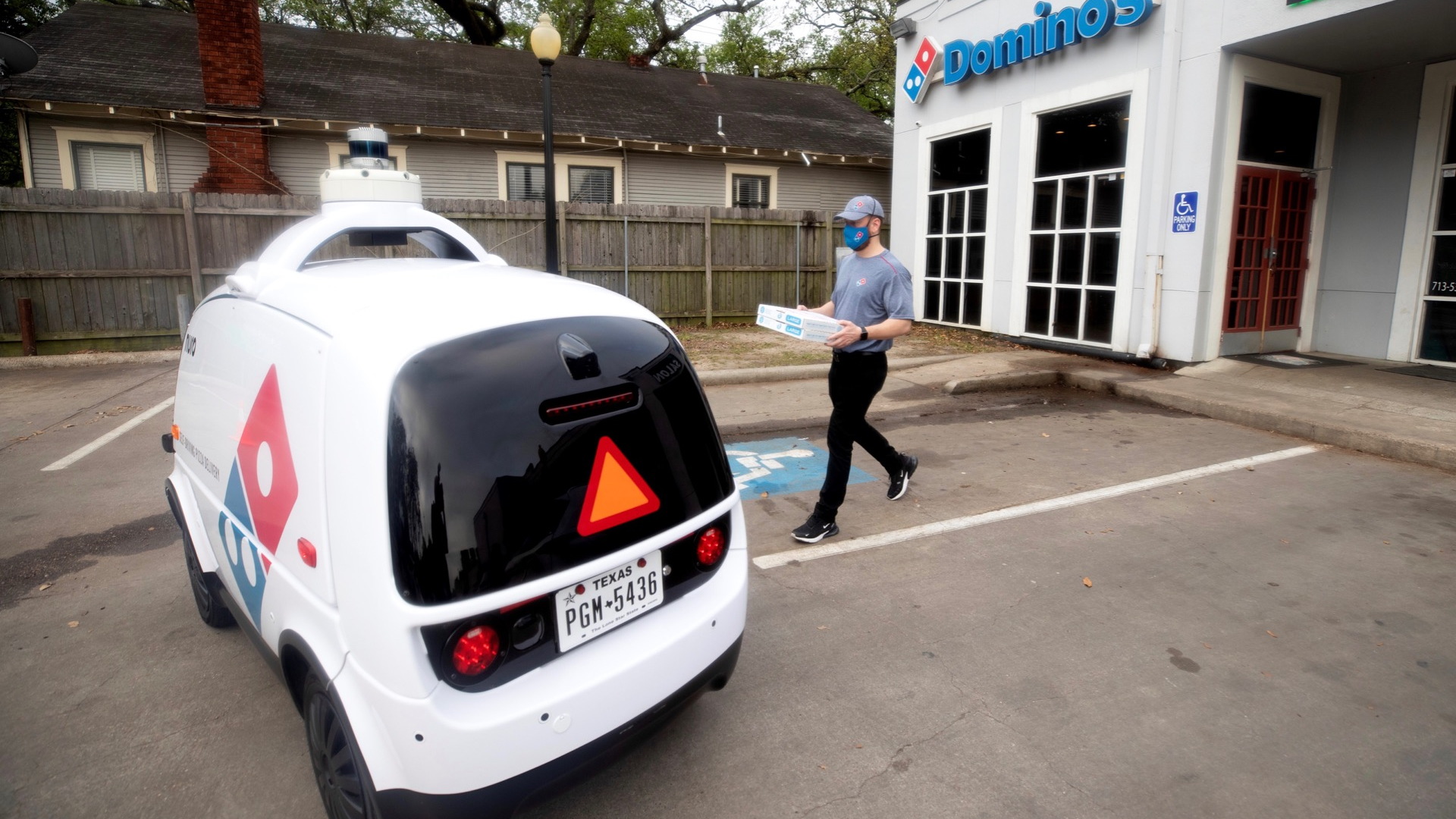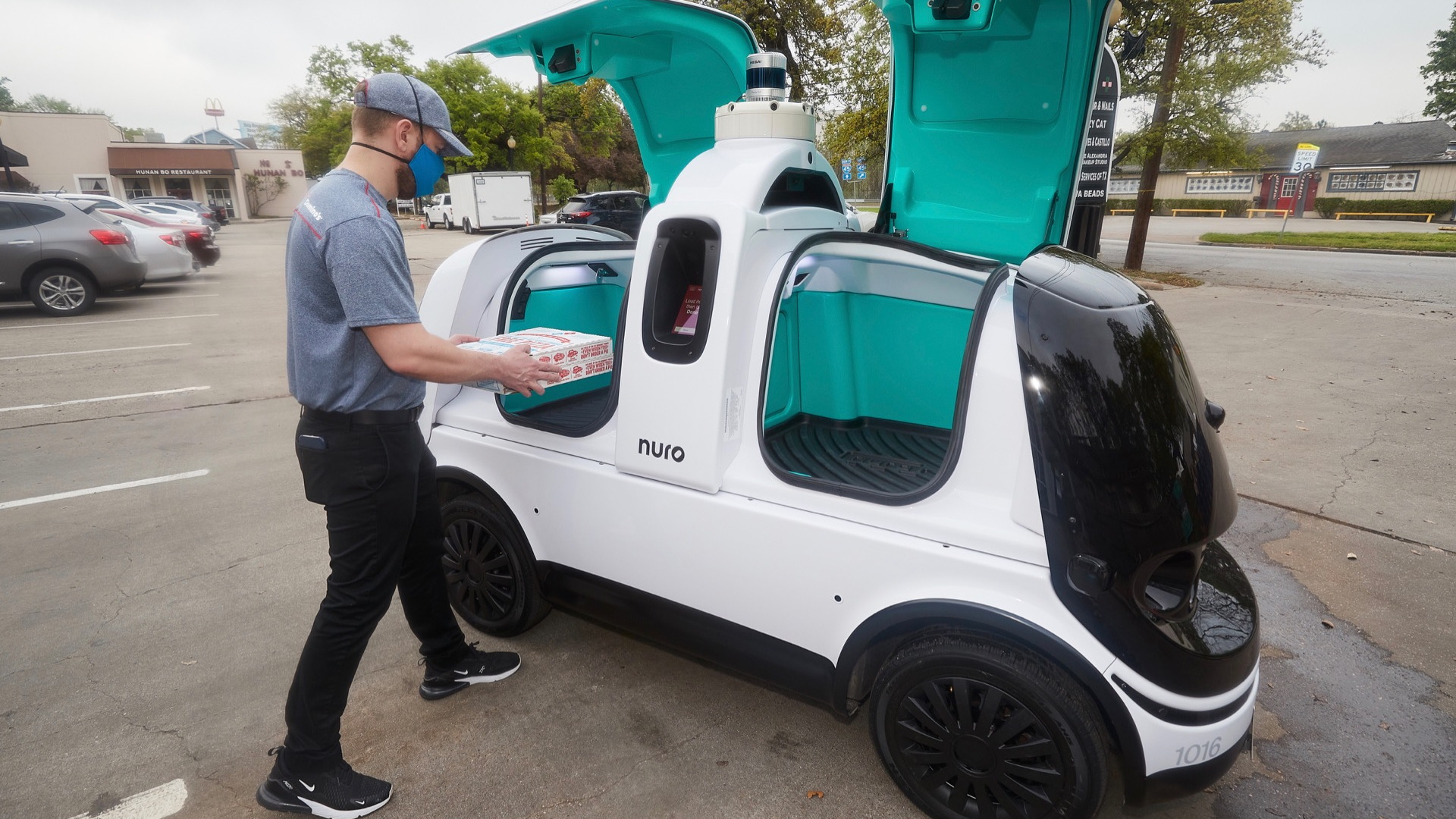Domino's and startup Nuro are launching an autonomous pizza-delivery service in Houston this week. Certain customers will have the option to get their pizza delivered by the Nuro R2 self-driving delivery vehicle.
The self-driving option is only available to customers who place a prepaid order through Domino's website on certain days and times from the pizza chain's Woodland Heights location, according to a press release. Customers who opt for robotic delivery will get text messages to track the vehicle, and a PIN to retrieve their pizza from its built-in storage boxes.
Domino's and Nuro announced plans for Houston autonomous pizza deliveries in June 2019, a few months after Nuro began handling food deliveries for Kroger grocery stores in the city. Prior to that, Domino's partnered with Ford on a pilot program using the automaker's prototype self-driving cars.
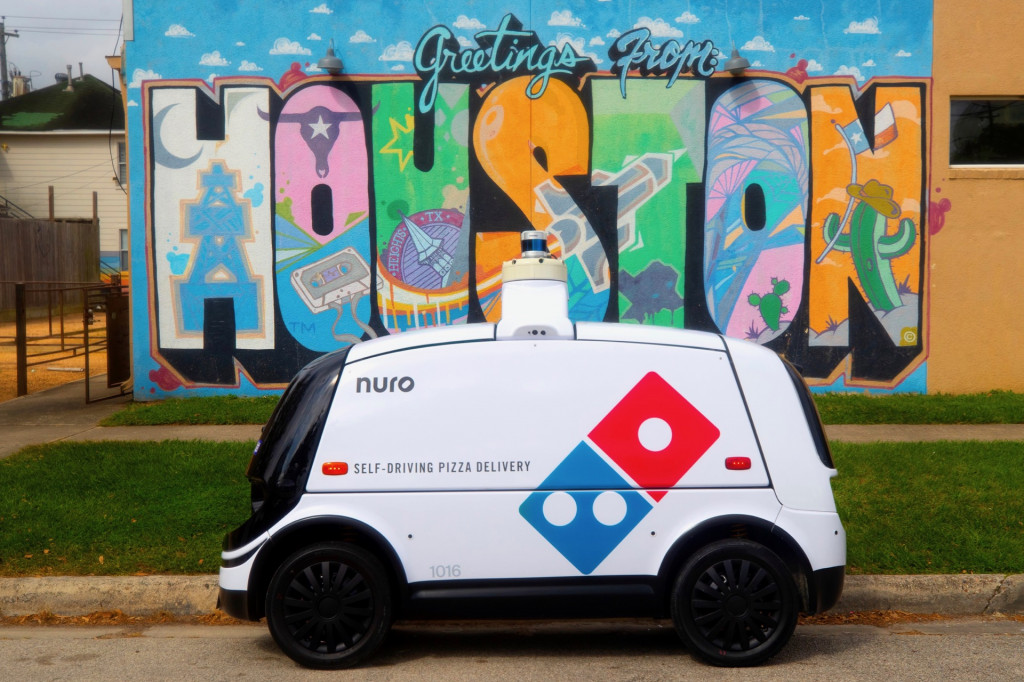
Nuro and Domino's autonomous pizza delivery
Those cars were modified Ford Fusion sedans, but the Nuro R2 was designed from the ground up as an autonomous delivery vehicle. It doesn't have space for a driver, and it's very narrow, giving it more buffer space around pedestrians and other vehicles when traveling in lanes meant for full-size cars. The startup claims this lessens the chance of a collision.
Founded by ex-Google self-driving car engineers, Nuro also operates delivery services in Arizona and California. It's one of multiple companies looking to use autonomous vehicles for short delivery runs, which may be a lower barrier for the technology. Unlike much-discussed autonomous ride-sharing, driverless and riderless deliveries don't require potentially apprehensive members of the public to ride in self-driving vehicles.
The day before Domino's and Nuro announced the start of Houston autonomous pizza deliveries, Intel-owned tech firm Mobileye announced plans to launch its own delivery service in partnership with Udelv, a startup that's testing self-driving delivery vans in some U.S. cities. Mobileye, which markets its own sensor suite and computer-vision software for self-driving cars, plans to launch the service in 2023, and wants to put 35,000 vehicles in operation by 2028, according to The Verge.
